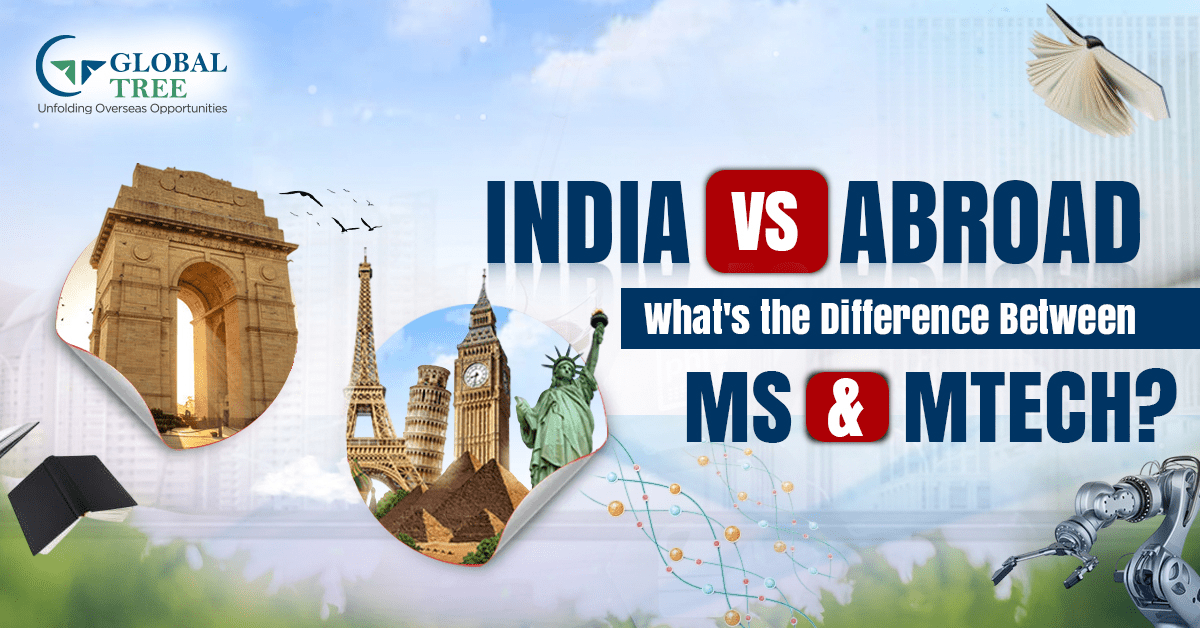Best Non Collateral Loans for Education Abroad

- Introduction
- How to Apply for a Education Loan-Non Collateral ?
- Financial Institutions/ Banks Offering Non Collateral Loans
- Understanding Education Loan without Collateral
- Benefits of Education Loan without Collateral
- Why is Credit Score Important in Education Loan?
- Considerations and Tips to get Education Loan without Collateral
- Conclusion
Introduction
Pursuing higher education is a transformative journey that opens doors to new opportunities and personal growth.
However, the cost of education can often be a significant barrier for many aspiring students. In such cases, education loan without collateral become a crucial lifeline, providing financial support without the need for substantial assets as security.
Let us delve into the intricacies of education loan without collateral, exploring the benefits, application process, and considerations to ensure a smooth financial pathway for your educational pursuits.
How to Apply for a Education Loan-Non Collateral ?
This is a very important part of the education loan. Lets take a look:
- Research Lenders: Start by researching reputable lenders that offer unsecured education loan. Compare interest rates, repayment terms, and eligibility criteria to find the most suitable option for your needs.
- Check Eligibility: Understand the eligibility criteria set by the lender. This typically includes factors such as age, academic background, and co-borrower requirements. Some lenders may also consider the credit history of the borrower or co-borrower.
- Gather Documentation: While the documentation required for unsecured education loan is generally less extensive than that of secured loans, you will still need to provide proof of identity, academic records, and financial statements. Be prepared to submit these documents during the application process.
- Consider a Co-Borrower: If your credit history is limited or if you are a first-time borrower, having a co-borrower with a stable financial background can enhance your chances of loan approval and may result in more favorable terms.
- Loan Approval and Disbursement: Once your application is approved, the lender will disburse the loan amount directly to your educational institution or, in some cases, to your bank account. Ensure that you understand the terms and conditions of the loan agreement before proceeding.
[You may also like: Everything you need to know about Education loans for study abroad!]
Financial Institutions/ Banks Offering Non Collateral Loans
| Financial Institution | Loan Type | Eligibility Criteria | Interest Rates | Repayment Terms |
|---|---|---|---|---|
|
Bank of America |
Personal Loans |
Good credit score, stable income |
Starting from 5.99% APR |
12 to 60 months |
|
Wells Fargo |
Unsecured Personal Loans |
Good credit, sufficient income |
Fixed rates, starting from 5.49% |
12 to 84 months |
|
Discover Personal Loans |
Personal Loans |
Good credit history, steady income |
Fixed rates, starting from 6.99% |
36 to 84 months |
|
Citibank |
Personal Loans |
Good credit, regular income |
Starting from 7.99% APR |
Up to 60 months |
|
SoFi |
Personal Loans |
Good credit, strong financial profile |
Fixed rates, starting from 5.99% |
24 to 84 months |
[You may also like: Financial aids to your study abroad dream!]
Understanding Education Loan without Collateral
Education loan without collateral, also known as unsecured education loan, are financial tools designed to assist students in funding their academic endeavors without the requirement of providing assets as security.
Unlike secured loans that demand collateral such as property or assets, unsecured education loan rely on the borrower's creditworthiness and future earning potential.
This makes them an accessible option for those who may not have substantial assets to pledge.
[You may also like: Looking for student loan? Read these top tips!]
Benefits of Education Loan without Collateral
Let's take a look at the benefits:
1. Accessibility: One of the primary advantages of unsecured education loan is their accessibility. They open the door to education financing for individuals who do not possess valuable assets to secure a loan, widening the scope of educational opportunities.
2. Streamlined Application Process: Compared to secured loans, the application process for unsecured education loan is often more straightforward. The absence of the need for collateral reduces the documentation and evaluation process, making it faster and more efficient.
3. Flexible Use of Funds: Unsecured education loan can cover a range of educational expenses, including tuition fees, accommodation, textbooks, and other related costs. This flexibility allows borrowers to manage their finances according to their individual needs.
4. No Risk to Assets: Since these loans do not require collateral, borrowers do not risk losing their assets in the event of non-repayment. This provides a level of security and peace of mind for those venturing into the realm of education loan.
5. Building Credit History: Timely repayment of an unsecured education loan contributes positively to the borrower's credit history. This can be beneficial for future financial endeavors, such as applying for credit cards, car loans, or mortgages.
[You may also like: This is how you can fund your education]
Why is Credit Score Important in Education Loan?
A credit score plays a crucial role in the process of obtaining an education loan. It is a numerical representation of an individual's creditworthiness and financial responsibility.
Lenders use credit scores to assess the risk associated with lending money to a borrower. Here's why credit score is important in the context of education loan:
1. Loan Approval and Interest Rates:
A higher credit score increases the likelihood of loan approval. Lenders view individuals with higher credit scores as more financially responsible and less risky.
Moreover, a good credit score often leads to more favorable interest rates. Borrowers with higher credit scores may qualify for lower interest rates, resulting in lower overall loan costs.
2. Loan Amount Approval:
Credit scores can influence the approved loan amount. A higher credit score may enable borrowers to secure a larger loan amount, covering a broader spectrum of educational expenses.
Conversely, a lower credit score might result in a lower approved loan amount, potentially necessitating additional funding sources.
3. Repayment Terms and Options:
Credit scores can influence the terms and conditions of the loan, including repayment options.
Borrowers with higher credit scores may have access to more flexible repayment terms, such as longer repayment periods or the availability of income-driven repayment plans.
This flexibility can make managing the loan more manageable.
4. Loan Fees and Additional Costs:
Some lenders may charge fees or impose additional costs based on the borrower's credit score.
Individuals with lower credit scores may encounter higher fees or interest rates, affecting the overall affordability of the education loan. Understanding these potential costs is crucial for effective financial planning.
5. Future Borrowing Opportunities:
A positive credit history established through responsible management of an education loan can contribute to a stronger credit score.
This, in turn, can enhance future borrowing opportunities, such as obtaining a mortgage, car loan, or other financial products. Conversely, defaulting on loan payments can have a detrimental effect on credit scores, impacting future financial endeavors.
Considerations and Tips to get Education Loan without Collateral
Let's take a look at it:
- Evaluate Interest Rates: While unsecured education loans may have higher interest rates compared to secured loans, it's crucial to compare rates among different lenders. Look for options with competitive rates and favorable repayment terms.
- Understand Repayment Terms: Familiarize yourself with the repayment terms and conditions of the loan. Be aware of the grace period, interest rates, and any penalties for late payments. This knowledge will help you plan your finances effectively.
- Budget Wisely: Create a budget that outlines your educational expenses and ensures that the loan amount covers all necessary costs. Responsible financial planning will contribute to a smoother repayment process.
- Explore Scholarships and Grants: While education loans are a valuable resource, it's also wise to explore scholarship and grant opportunities. These can help reduce the overall financial burden and, in some cases, eliminate the need for loans.
- Build a Good Credit History: If you're considering an unsecured education loan, having a good credit history can significantly improve your chances of approval. Paying bills on time and managing credit responsibly will contribute positively to your credit score.
[You may also like: 100% Scholarships to Study Abroad: Are They Real?]
Conclusion
Education loans without collateral serve as a beacon of hope for individuals aspiring to pursue higher education without the burden of securing loans against valuable assets.
By understanding the benefits, navigating the application process, and considering important factors, borrowers can embark on their academic journey with financial confidence.
Remember, education is an investment in your future, and with the right financial support, you can unlock doors to a world of knowledge and opportunities.









